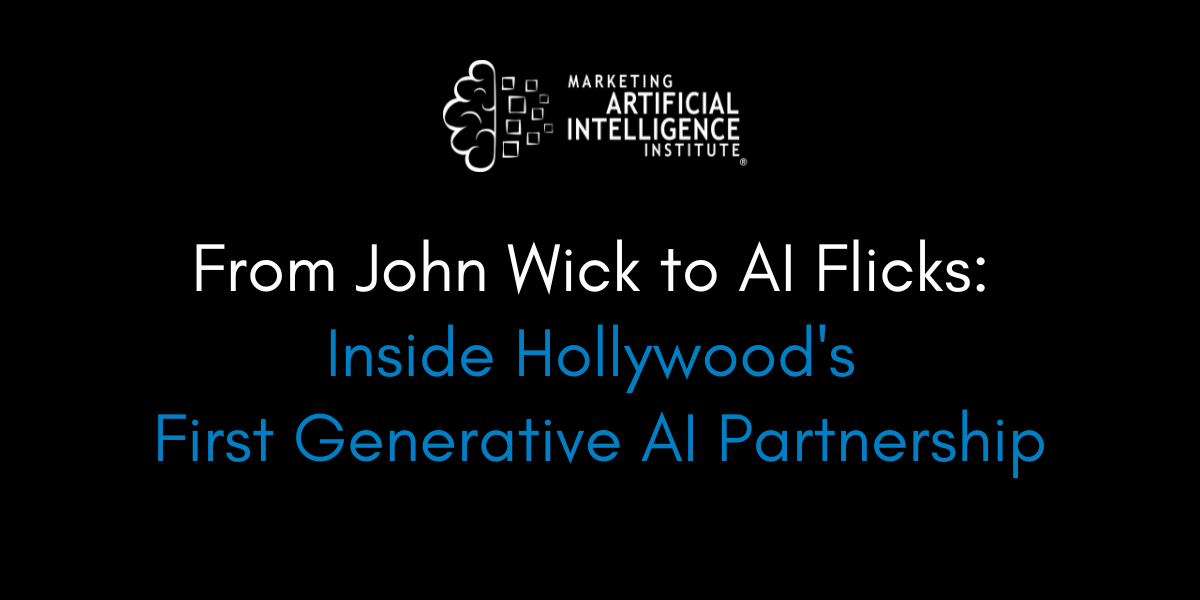There’s some huge AI news brewing in Hollywood…
Movie studio Lionsgate has inked a major deal with AI video generation company Runway to train a custom model based on Lionsgate’s movie catalog, which includes hits like the John Wick franchise and the Twilight series.
It’s the first instance of a generative AI company publicly partnering with a Hollywood studio—and it may open wide the floodgates for AI adoption in the industry.
Why should you be paying attention to the Lionsgate-Runway deal?
I got the answer from Marketing AI Institute founder and CEO Paul Roetzer on Episode 116 of The Artificial Intelligence Show.
Details of the Deal
First, the particulars of the deal. As part of it, Runway will train a custom video model on Lionsgate’s movie catalog. Lionsgate will then give their creative talent, like filmmakers and directors, access to this AI model to “augment” their work, according to TechCrunch.
The initial focus will be on using the model for internal work like storyboarding and other pre-production work. From there, its use could expand to more efficiently creating visual effects in Lionsgate films.
(One leader at Lionsgate told The Wall Street Journal that it had the potential to give the studio’s lower-budget films the same types of resources as its big-ticket movies.)
Why It Matters
Lionsgate’s vice chairman, Michael Burns, also told the Journal he expects the new model to save the company “millions and millions of dollars.”
Those kinds of economic incentives mean you can count on mass adoption of AI in Hollywood. While there have been conversations between studios and AI companies like OpenAI (which is pitching Hollywood on its Sora video generation model), this is the first public partnership of its scale—but it won’t be the last.
“I think we’re going to see a flood of these kinds of deals,” says Roetzer. It will likely also expand beyond just movies and into television and video game production studios as well, he notes.
Partnerships like this one run in parallel to all the concerns that creative studios have around AI and copyright. There are plenty of ongoing lawsuits against AI companies for using copyrighted material to train models, including on movies scraped from the internet. Movie studios face the same dilemma that publishers, creators, and platforms do when it comes to AI companies:
"At the end of the day, these companies have two choices: Sue AI model companies for training on their data or work with them and make money,” says Roetzer.
“And I think one by one, they're going to choose to work with them and make money."
Mike Kaput
Mike Kaput is the Chief Content Officer at SmarterX and a leading voice on the application of AI in business. He is the co-author of Marketing Artificial Intelligence and co-host of The Artificial Intelligence Show podcast.


